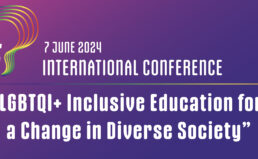On January 20, the association LGL (Lithuanian Gay League) appealed to the President of the Republic of Lithuania and the Prime Minister encouraging them to form an interdepartmental work group for the preparation of an action plan for implementation of the requirements laid down in the Council of Europe recommendations. The national advocacy association which defends the rights of LGBT people proposes to include in the work group not only representatives of the Ministries of Social Protection and Labour, Justice, Education and Science, and Culture, but also of Equal Opportunities Ombudsman’s Office, Migration Department, and non-governmental organisations defending human rights.
Recommendation CM/Rec (2010)5 of 31 March 2010 of the Committee of Ministers of the Council of Europe ‘to Member States on measures to combat discrimination on grounds of sexual orientation or gender identity’ proposes to review existing legislative and other measures in line with the requirements of the Recommendation in order to ensure respect for the human rights of lesbian, gay, bisexual and transgender persons and to promote tolerance towards them.
According to Vladimir Simonko, chairman of LGL, considering the activities of the European Union in combating discrimination on grounds of sexual orientation and homophobia and in view of the resolution of the European Parliament of 17 September 2009 on the Lithuanian Law on the Protection of Minors against the Detrimental Effects of Public Information as well as the resolution of 19 January 2011 on the violation of freedom of expression and discrimination on the basis of sexual orientation in Lithuania, specific and consistent actions must be taken to improve the situation of the LGBT community in Lithuania.
In spring 2009, the Government of the Republic of Lithuania adopted the national antidiscrimination programme 2009–2011 which seeks to develop society’s tolerance and mutual understanding regarding gender, age, sexual orientation, race, ethnicity, religion, beliefs, and disability and to improve the legal framework on anti-discrimination. According to this programme, more favourable conditions are to be created for the activities of associations defending human rights; research in the area of discrimination is to be initiated, and information and education campaigns on anti-discrimination are to be organised, however, implementation of this programme has been in jeopardy from the start.



